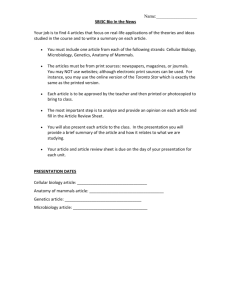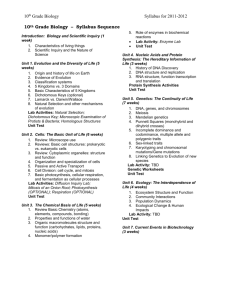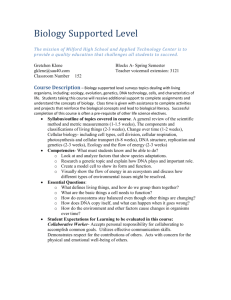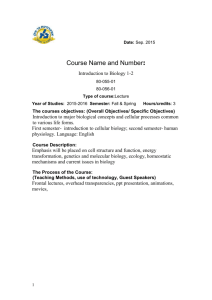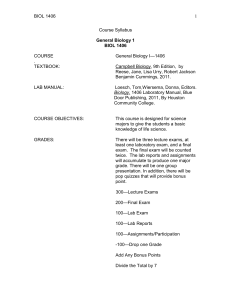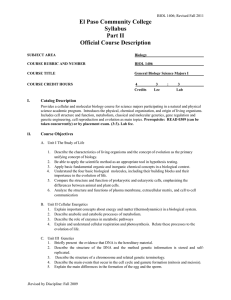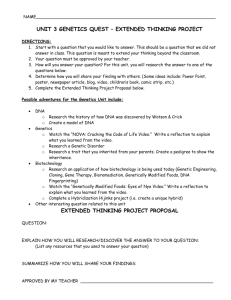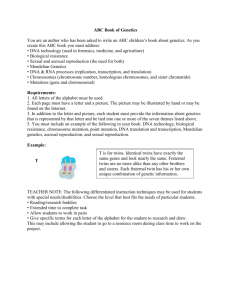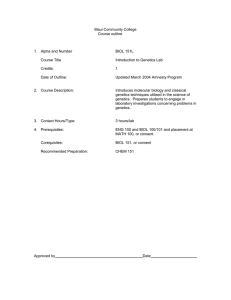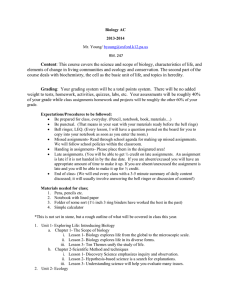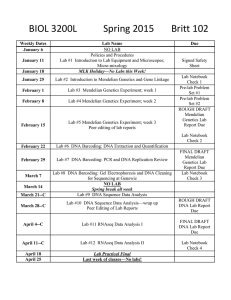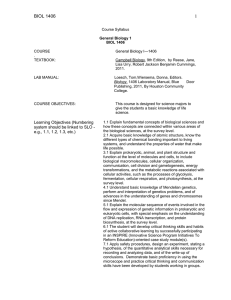File - Mrs. McGaha's Science Place
advertisement
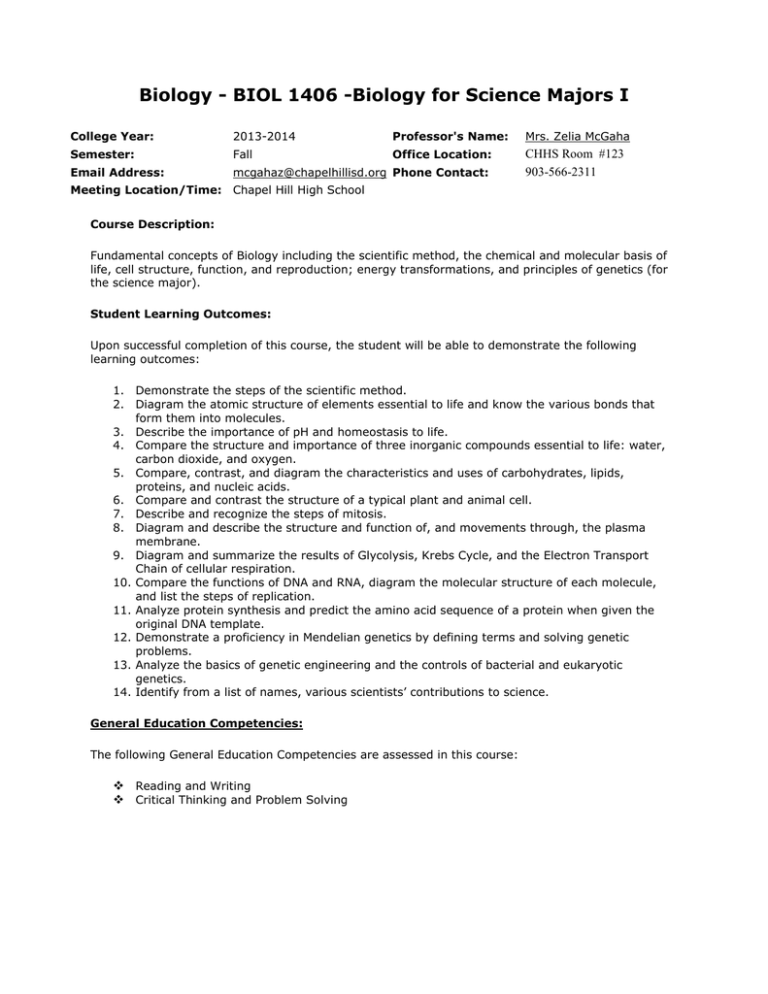
Biology - BIOL 1406 -Biology for Science Majors I College Year: 2013-2014 Professor's Name: Mrs. Zelia McGaha Semester: Fall Office Location: Email Address: mcgahaz@chapelhillisd.org Phone Contact: CHHS Room #123 903-566-2311 Meeting Location/Time: Chapel Hill High School Course Description: Fundamental concepts of Biology including the scientific method, the chemical and molecular basis of life, cell structure, function, and reproduction; energy transformations, and principles of genetics (for the science major). Student Learning Outcomes: Upon successful completion of this course, the student will be able to demonstrate the following learning outcomes: 1. Demonstrate the steps of the scientific method. 2. Diagram the atomic structure of elements essential to life and know the various bonds that form them into molecules. 3. Describe the importance of pH and homeostasis to life. 4. Compare the structure and importance of three inorganic compounds essential to life: water, carbon dioxide, and oxygen. 5. Compare, contrast, and diagram the characteristics and uses of carbohydrates, lipids, proteins, and nucleic acids. 6. Compare and contrast the structure of a typical plant and animal cell. 7. Describe and recognize the steps of mitosis. 8. Diagram and describe the structure and function of, and movements through, the plasma membrane. 9. Diagram and summarize the results of Glycolysis, Krebs Cycle, and the Electron Transport Chain of cellular respiration. 10. Compare the functions of DNA and RNA, diagram the molecular structure of each molecule, and list the steps of replication. 11. Analyze protein synthesis and predict the amino acid sequence of a protein when given the original DNA template. 12. Demonstrate a proficiency in Mendelian genetics by defining terms and solving genetic problems. 13. Analyze the basics of genetic engineering and the controls of bacterial and eukaryotic genetics. 14. Identify from a list of names, various scientists’ contributions to science. General Education Competencies: The following General Education Competencies are assessed in this course: Reading and Writing Critical Thinking and Problem Solving General Description of the Subject Matter of Lectures or Discussions: 1. Introduction, Scientific Method, Critical Thinking 2. Principles of Inorganic Chemistry 3. Water, Oxygen, and Carbon Dioxide 4. Proteins, Carbohydrates, Lipids, Nucleic Acids 5. The Cell Theory 6. Cellular Organelles and Functions 7. The Plasma Membrane 8. Mitosis 9. Principles of Energy Acquisition and Use 10. Cellular Respiration 11. DNA and RNA Structure and Function 12. DNA Replication 13. Protein Synthesis 14. Principles of Molecular and Mendelian Genetics 15. Genetics and Genetic Engineering List of Textbook(s) and Required and Recommended Readings: Biology, The Unity and Diversity of Life, Starr Taggart Evers Starr, 13th ed. Laboratory Manual for Biology Majors, Pilgrim & Pilgrim Technology Requirements: Internet Access Additional Materials and Supplies (may be required): Course Notes, BIOL 1406 Methods of Evaluation: 50% Lecture Exams (4) that are multiple choice, matching, labeling which cover recall, recognition, and critical thinking (reasoning) skills. Assigned reports. 30% Laboratory Average (12 labs, weekly tests, 2 practical exams) 20% Final Exam (comprehensive) Expected Classroom Etiquette for Tyler Junior College (and Chapel Hill High School) If you attend this class or a portion of this class then class etiquette dictates that you will: 1. Attend class each time the class meets. 2. Be on time for class and remain for the entire period. You are inconsiderate of your classmates if you arrive late and leave early. 3. Refrain from talking while the professor is lecturing. Idle chattering and giggling are disruptive to the class and disrespectful to your professor and your classmates. 4. Not use cell-phones, computers, or any other electronic devices in class without prior approval from your professor. 5. Be attentive and participate in class. See College Policies on Tyler Junior College website www.tjc.edu
